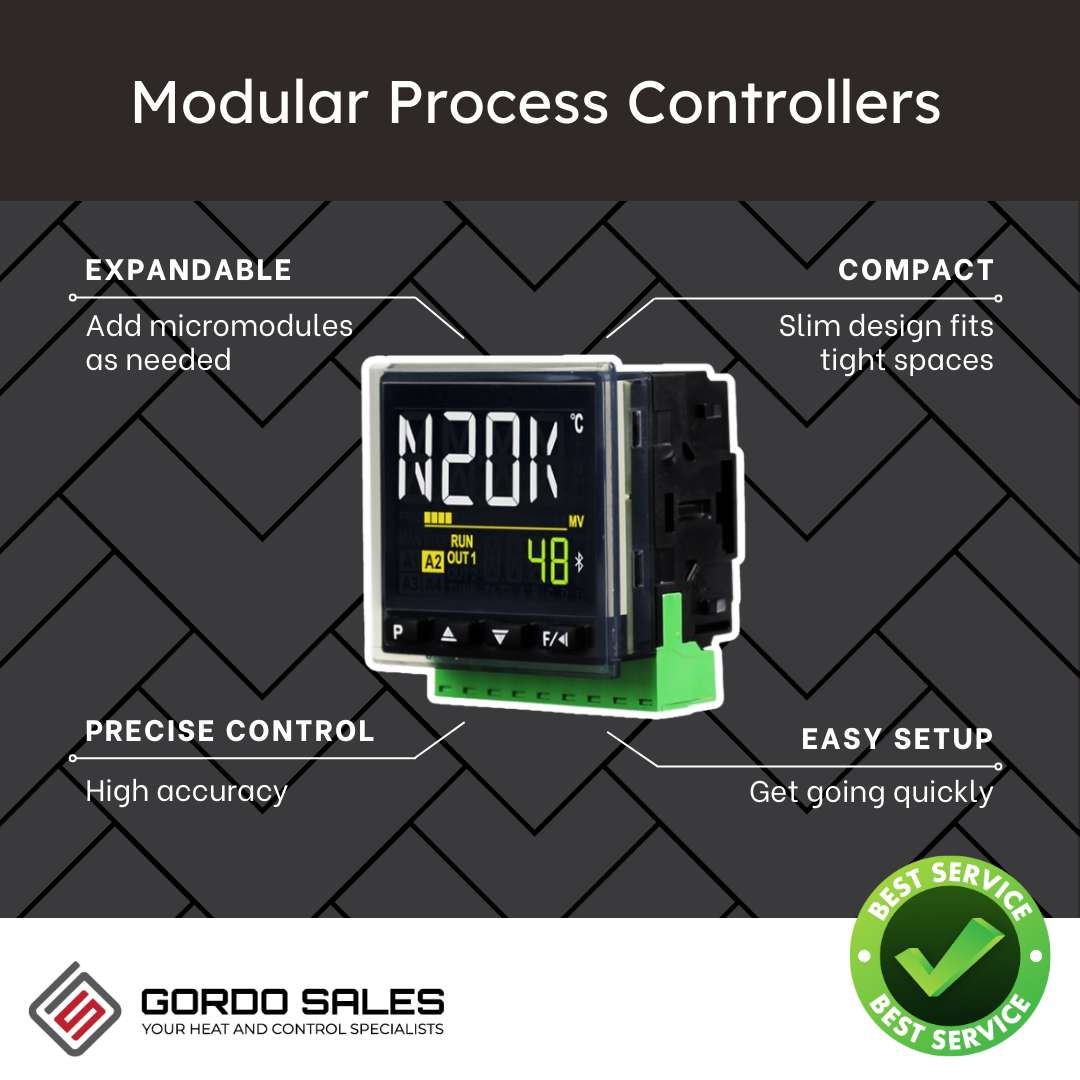
Welcome to the World of Precision Control!
When it comes to industrial processes, precision is not just a luxury—it's a necessity. That’s where temperature controllers come in, playing a pivotal role in ensuring operations run not just smoothly, but also efficiently and safely. Whether you're melting plastic or brewing beer, the ability to control the temperature precisely is crucial. So, let’s dive into the fascinating world of temperature controllers and discover how they can transform your industrial processes.
Getting to Know Your Temperature Controllers
Temperature controllers are the unsung heroes of the industrial world. But what exactly are they? Simply put, a temperature controller is a device that manages heating or cooling systems. It reads the temperature from a connected sensor and controls the environment to maintain the desired temperature, quite literally “controlling the temperature.” From simple thermostats to sophisticated PID controllers, these devices ensure that your process maintains the exact heat required, no matter how critical the operation.
A Closer Look at Types of Temperature Controllers
There’s a variety of controllers out there, but let's focus on the star of the show: the PID controller. PID—standing for Proportional, Integral, Derivative—controllers are renowned for their accuracy. The PID temperature controller is particularly adept at maintaining a stable temperature, making it perfect for applications where precision is paramount, like in pharmaceuticals or any process where the product quality depends critically on temperature stability.
- PID Controllers: These are the go-to for processes that need steady control without overshoot. Using a method known as 'tuning a PID,' these devices can be calibrated to respond optimally to your system’s unique characteristics.
- On/Off Controllers: The simplest form of temperature controllers, suitable for applications where precise control is less critical. They work by switching the heat source on or off to control the temperature.
- Proportional Controllers: These reduce the system's tendency to oscillate, as seen with on/off controllers, by varying the power supplied to the heater rather than simply turning it on and off.
Why Temperature Control Matters in Industry
Imagine you're crafting a specialty chemical that requires a specific temperature to react properly, or you're trying to ensure that the chocolate you produce has just the right gloss and snap. That’s where temperature controllers prove indispensable. Here are a few benefits of deploying these devices in various sectors:
- Consistency: A PID temperature controller maintains the temperature within tight bounds, which is crucial for producing consistent quality products.
- Efficiency: By maintaining optimal temperatures, less energy is wasted, which means lower operational costs.
- Safety: Prevents overheating and potential hazards, ensuring a safer workplace.
Selecting the Perfect Temperature Controller
Choosing the right temperature controller is not about picking the most expensive or the one with the most features; it's about finding the right fit for your process. Here’s how to make that choice:
- Understand Your Process Needs: Consider the range of temperatures you need and how quickly those temperatures need to adjust.
- Environmental Factors: Think about conditions that could affect performance, like humidity or ambient temperatures.
- Integration: Make sure the temperature controller can communicate effectively with other systems you have in place.
Installation and initial setup are also crucial. A poorly installed temperature controller can lead to ineffective operation, so it may be worth investing in professional installation and setup.
Innovations and Advanced Features
The field of temperature control technology is always advancing. Modern PID controllers offer features like remote monitoring capabilities, allowing you to oversee processes from anywhere, or advanced algorithms that can predict how the temperature will change. These innovations not only add convenience but also enhance the control and efficiency of your systems.
Success Stories in Temperature Control
Let’s look at some real-life examples where effective temperature control has made a significant impact. A specialty brewery was struggling with inconsistent batch quality until they implemented a new PID temperature controller. Post-installation, their product quality stabilized dramatically, leading to increased customer satisfaction and sales. In another instance, a manufacturer of precision parts used in automotive applications found that by tuning their PID controllers more accurately, they could reduce scrap rates by 15%.
Wrapping It Up: The Heartbeat of Industrial Processes
In conclusion, whether you call it a temp controller PID, a PID temperature controller, or simply a temperature controller, these devices are at the heart of effective industrial management. They are critical in any process where temperature plays a key role in product quality and operational safety.
Ready to Take Control of Your Temperature?
If you're looking to enhance your operational processes through precise temperature control, or if you’re considering tuning a PID to optimize performance, don’t hesitate to reach out. Let’s discuss how you can implement the right temperature control solutions to meet your unique industrial needs. Remember, when it comes to control, precision is the key!